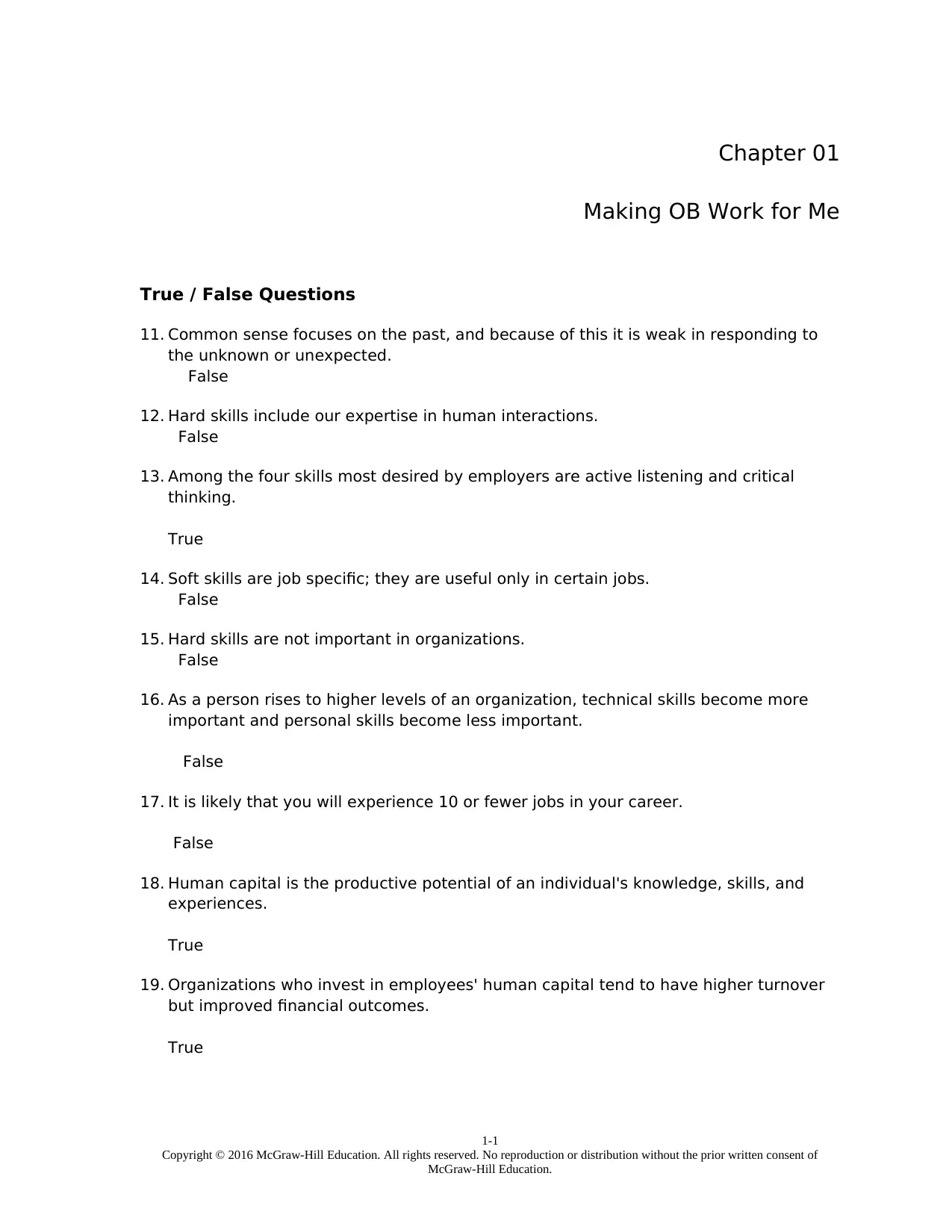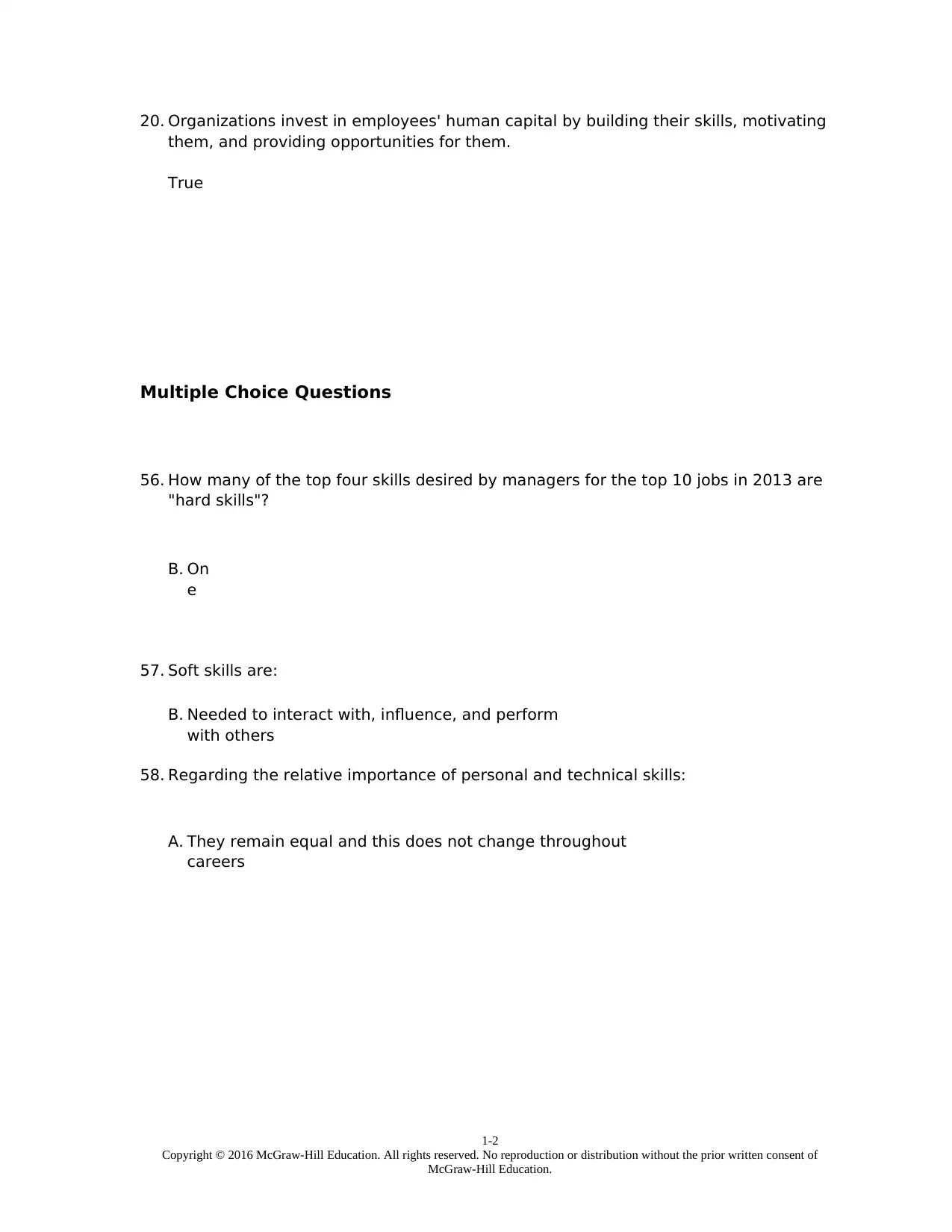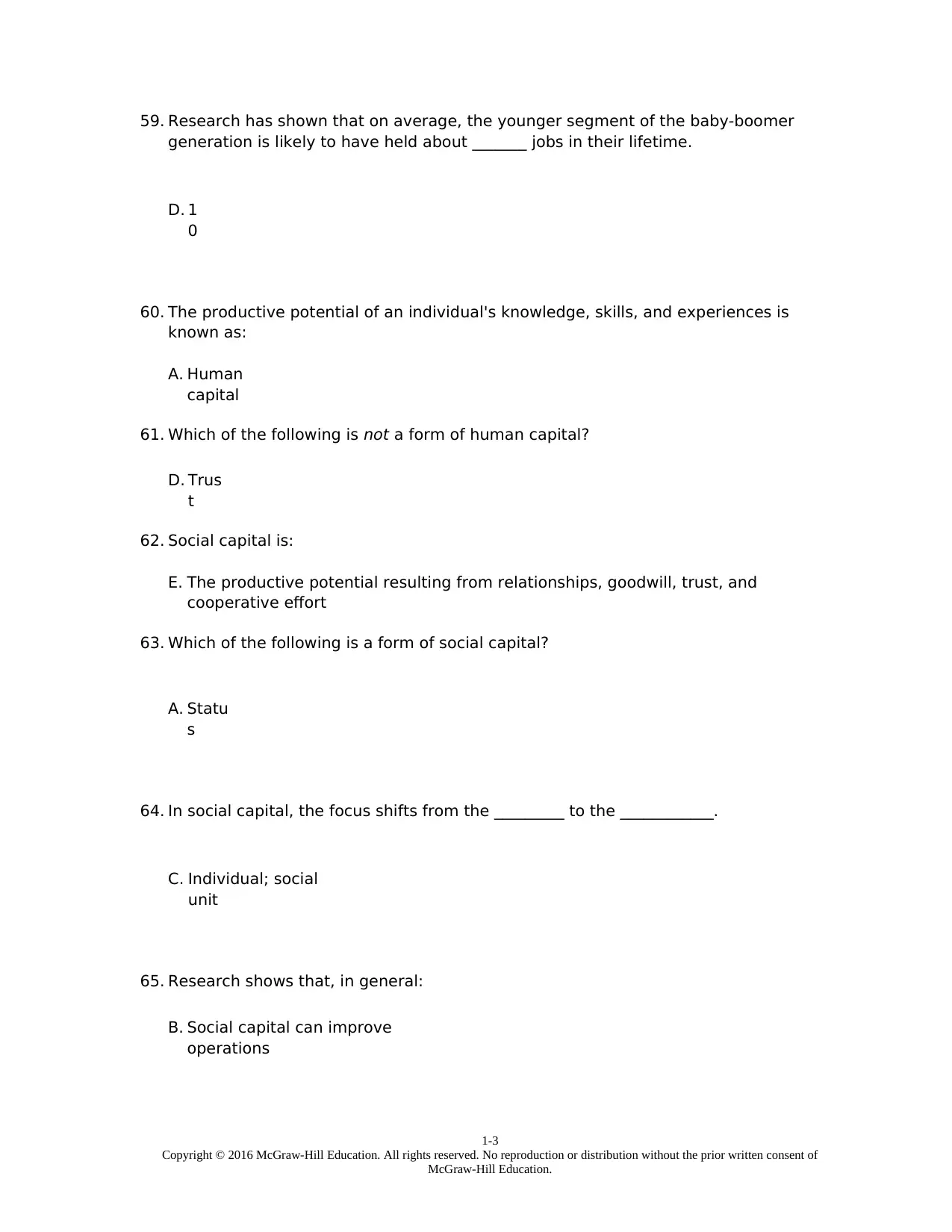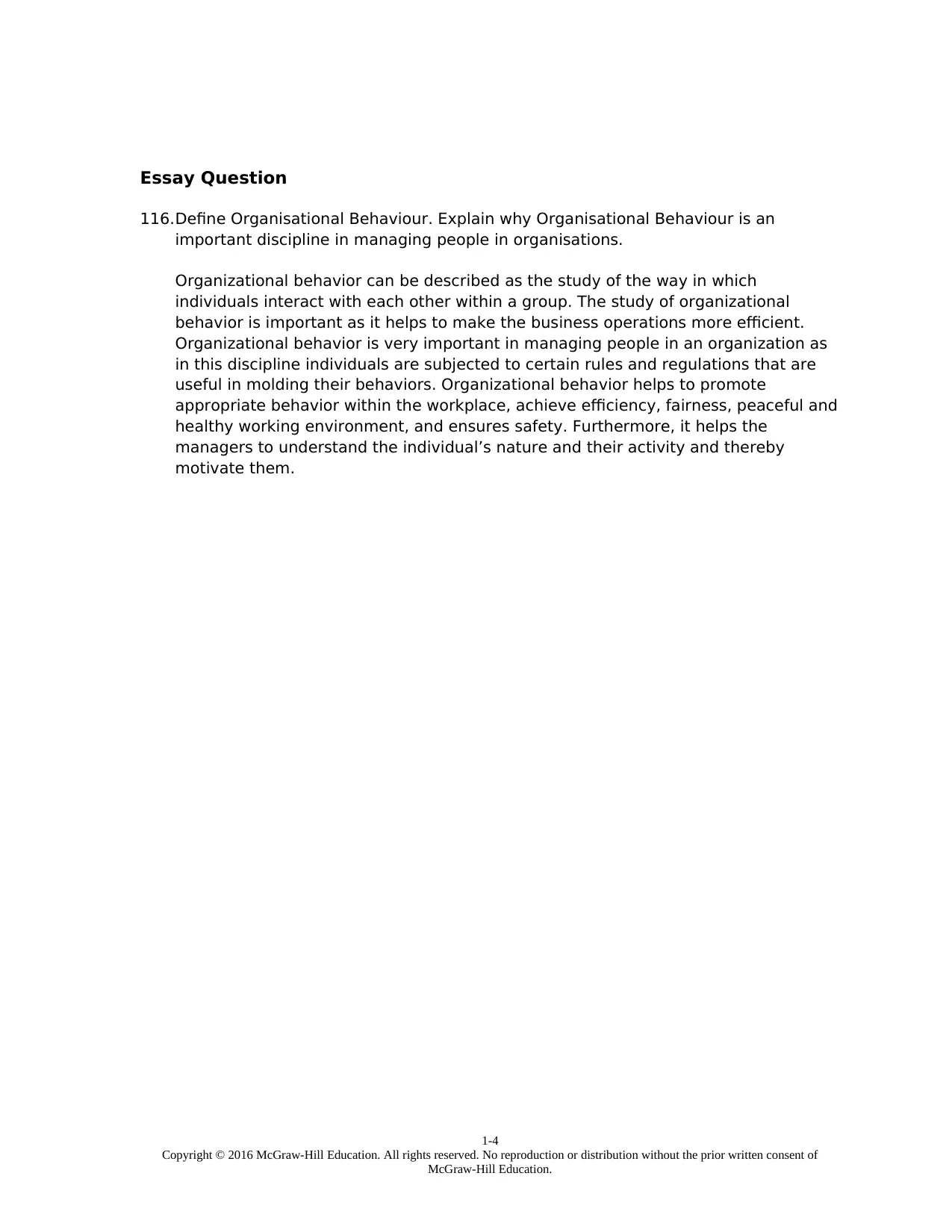Organizational Behavior Assignment: Chapter 01 Questions & Answers
VerifiedAdded on 2020/03/07
|4
|584
|221
Homework Assignment
AI Summary
This document provides solutions to an Organizational Behavior assignment focusing on Chapter 1. It includes answers to true/false questions, multiple-choice questions, and an essay question on defining Organizational Behavior and its importance in managing people within organizations. The solutions cover key concepts such as human capital, social capital, and the skills needed for effective management. The assignment aims to assess the understanding of fundamental organizational behavior principles and their practical applications in the workplace. The essay question explores the significance of organizational behavior in fostering efficient operations, promoting a healthy work environment, and understanding employee behavior for effective management. The document serves as a valuable resource for students studying organizational behavior, providing a comprehensive overview of the chapter's core concepts and their practical implications.
1 out of 4











![[object Object]](/_next/static/media/star-bottom.7253800d.svg)